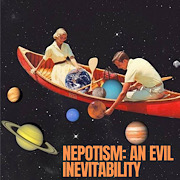|
jabby posted:I am always cautious of pseudo-addiction. If someone is in pain then of course they are going to ask for painkillers, and branding them addicted unless they show a distinct pattern of harmful use is like saying a diabetic is addicted to insulin. This seems like a pretty concise analogy. I'll file it away for later use if I need it.
|
|
|
|

|
| # ? May 16, 2024 00:38 |
Grundulum posted:This seems like a pretty concise analogy. I'll file it away for later use if I need it. The methadone/Suboxone clinics/docs are fond of that analogy. And of course long-term opioid users are dependent (or addicted). They just aren't always drug abusers/junkies.
|
|
|
|
|
Grundulum posted:This seems like a pretty concise analogy. I'll file it away for later use if I need it. But as Subvisual Haze points out, opiates become slowly less effective over time. Insulin does not.
|
|
|
|
BarbarianElephant posted:But as Subvisual Haze points out, opiates become slowly less effective over time. Insulin does not. Opiates can become less effective at masking pain over time. Sometimes not, especially administered at correct doses. Someone physically dependent on opiates can get very sick or even die if they no longer consume it. Same with diabetics and insulin. That's why the analogy works.
|
|
|
|
Frontline has a nice "storycorps-lite" kind of thing that is an interesting read http://apps.frontline.org/heroin-stories/
|
|
|
|
Ceiling fan posted:
I'm interested which third world countries you visit that have people regularly visit the US.
|
|
|
|
Ceiling fan posted:Opiates can become less effective at masking pain over time. Sometimes not, especially administered at correct doses. Someone physically dependent on opiates can get very sick or even die if they no longer consume it. Same with diabetics and insulin. That's why the analogy works. Opioid withdrawal while extremely unpleasant is almost never fatal. The analogy also breaks down a bit because insulin is a naturally produced compound necessary to live, so calling it a physical dependence is a bit of a stretch. I think a better drug class to illustrate the difference between sole physical dependence and what we more classically view as addiction (psychological dependence) are the antidepressants. Prolonged use of most antidepressants followed by sudden discontinuation will often result in very unpleasant withdrawal symptoms in patient (sleep disturbances, weight gain, worsening depression, "brain shocks" etc.), however unlike in addictive medications there is very little craving for the patient to re-initiate their antidepressant. I've had a lot of patients voluntarily discontinue their own antidepressant due to side effects and then push through the withdrawal with or without a dose taper, but I've only very rarely seen a patient on chronic opioids do the same. Another good example would be caffeine. I'm physically dependent on caffeine at the moment (tolerance developing to the dose, would likely develop withdrawal associated headaches and irritability if I stopped use suddenly), but there's very little psychological dependence. Without that psychological component and associated craving I would have very little desire to relapse after the physical withdrawals are complete. With opioids though your body is going to remember that reinforcing rush of dopamine into your nucleus accumbens for a long time.
|
|
|
|
computer parts posted:I'm interested which third world countries you visit that have people regularly visit the US.
|
|
|
|
Yeah, I think it's key to differentiate between addiction and physical dependence. Physical dependence is an internal factor caused by prolonged presence of a chemical changing the nature of a regulatory feedback system, whereas addiction appears to be driven mainly by external factors and doesn't even need a exogenous chemical at all, like the dopamine feedback response in gambling addiction. It's interesting looking at the addiction rates for inpatient opiate courses vs. those for people just given a bottle of pills and sent home or those actively seeking drugs. If it were only based on opportunity and repetition, PCA pumps would cause massive rates of addiction, but it is only seen rarely, usually in patients with a history of drug or alcohol related disorders. They do still suffer from physical dependence if given a long course and require tapering. Addiction itself seems based on completely different factors, like social alienation.
|
|
|
|
Gail Wynand posted:Any of them? There are upper middle class and rich people in developing countries too. They are also the ones most likely to speak English and be able to afford to hang out with tourists. So the rich have issues with healthcare in the US? That seems strange.
|
|
|
|
Why do drug seekers turn down morphine for dilaudid?
|
|
|
|
BarbarianElephant posted:But as Subvisual Haze points out, opiates become slowly less effective over time. Insulin does not. If you want to be pedantic, type two diabetics become resistant to their insulin in a very similar way to opioids, in that they end up requiring higher and higher doses for the same effect. It's not a perfect analogy, but you get the idea, that it's not fair to brand people as addicts if they are using opioids to treat genuine pain. The hallmark of addiction is harmful use, not dependence. Interestingly there is good research to say that cycling between opioids helps prevent tolerance from developing in patients with chronic pain. I read a study recently that took patients taking fentanyl and patients taking buprenorphine and swapped them to approximately half the dose of the other opioid. Both groups reported better pain control even at half the dose, meaning it was the act of switching that was helpful. Dmitri-9 posted:Why do drug seekers turn down morphine for dilaudid? Different opioids have different effects. They are both good painkillers but morphine taken orally doesn't produce the same sort of high as other more potent drugs.
|
|
|
|
Canada has a fentanyl problem http://www.theglobeandmail.com/news/investigations/a-killer-high-how-canada-got-addicted-tofentanyl/article29570025/ How Canada got addicted to fentanyl Manufactured in China, it easily crosses our porous borders, triggering a heroin-like bliss in users – and, all too often, death. The Globe investigates the rise of a fatal opioid Buyers are assured their package won’t get seized at the Canadian border. To avoid the risk of detection, says a supplier from China, he conceals the purchase alongside urine test strips. Not that there’s reason to worry: Canadian border guards cannot open packages weighing less than 30 grams without the consent of the recipient. The supplier, who identified himself only as Alan, says he has two customers in Canada. He e-mails photos of fentanyl hidden inside silica-desiccant packets – the type normally used when shipping goods such as electronics – and a screen shot of a recent order from Canada, including a shipping address for a clothing store in British Columbia’s picturesque Okanagan Valley.
|
|
|
|
jet sanchEz posted:Manufactured in China, it easily crosses our porous borders, triggering a heroin-like bliss in users
|
|
|
|
computer parts posted:So the rich have issues with healthcare in the US? That seems strange. You can easily be rich enough to live well in a not-very-rich country and be completely floored by healthcare costs in the US.
|
|
|
|
jet sanchEz posted:Canada has a fentanyl problem Fentanyl is a dangerous drug, but an interesting one if you like studying chemistry at all. It's an opioid, meaning it hits those same feel-good receptors in your body, but it's not an opiate. If you look at the chemical stuctures all the naturally occuring opiates and their derivatives (morphine/codeine/oxycodone/hydromorphone/hydrocodone etc.) they all share the same chemical ring structure and really only differ based on -OH group here or there. Fentanyl is whole different world though, it's a purely synthetic chemical and it's chemical structure looks nothing like a traditional opiate. The normal rules of opioid cross tolerance (which are hazy to begin with) get thrown out the window. Also its purely synthetic nature means it doesn't need opium as a precursor in its synthesis.
|
|
|
|
Subvisual Haze posted:Opioid withdrawal while extremely unpleasant is almost never fatal. The analogy also breaks down a bit because insulin is a naturally produced compound necessary to live, so calling it a physical dependence is a bit of a stretch. The physiological effects of severe opiate withdrawl very rarely kills the sufferer directly, sure. But said effects also include "agonizing pain, hellish emotional distress/mental health trauma and a (physiological) borderline-biological imperative to get more opiates in your system right loving now to the point it overrides your capacity to reason". This combination can be pretty loving fatal (!), particularly if you're not being given adequate support and treatment to get through it (often due to poverty). The kids who go from their expensive, should never have been prescribed legal opiate medication to loving heroin aren't doing it (primarily) because of psychological dependence and they're not doing it because they're stupid enough to think "a heroin habit" is a good life direction. The physiological effects of opiate withdrawal is adequately awful and adequately fucks up your capacity to reason that they think it's their only option. Withdraw from antidepressants suck, withdrawal from opiates sucks and you also rob a gas station/sell everything you have including food and shelter/burn every bridge you've ever had/take up IV street heroin or any of a million other things that are going to be fatal eventually, and unfortunately probably pretty soon.
|
|
|
|
Subvisual Haze posted:Fentanyl is a dangerous drug, but an interesting one if you like studying chemistry at all. It's an opioid, meaning it hits those same feel-good receptors in your body, but it's not an opiate. If you look at the chemical stuctures all the naturally occuring opiates and their derivatives (morphine/codeine/oxycodone/hydromorphone/hydrocodone etc.) they all share the same chemical ring structure and really only differ based on -OH group here or there. Although as with any clandestine chemistry there's the chance for things to go very wrong, like the guy that accidentally synthesized MPTP as a side reaction while going for MPPP and a bunch of people got Parkinson's. Guavanaut fucked around with this message at 18:53 on Apr 9, 2016 |
|
|
|
CoolCab posted:The physiological effects of severe opiate withdrawl very rarely kills the sufferer directly, sure. But said effects also include "agonizing pain, hellish emotional distress/mental health trauma and a (physiological) borderline-biological imperative to get more opiates in your system right loving now to the point it overrides your capacity to reason". This combination can be pretty loving fatal (!), particularly if you're not being given adequate support and treatment to get through it (often due to poverty). I think you're fundamentally misunderstanding the difference between physical and psychological components of addiction/dependence. The psychological component dwarfs the physical. Indeed a physical component is not even necessary for a substance to be addictive/dependence forming, however the psychological component is absolutely essential. The central problem in grasping this is that CNS driven psychological effects can present as physical symptoms, even though at their core they are really psychological in nature. Let's take Loperamide as an example of this distinction. Loperamide is an opioid agonist that does not cross the blood brain barrier at normal doses. As such it will hit mu opioid receptors throughout a user's body (physical), but not cross into the CNS (psychological). Loperamide can thus be very useful in attenuating the purely physical symptoms of opioid withdrawal (yay you're not making GBS threads brown water!), but will do almost nothing to satisfy the all-important craving that drives opioid abuse. Giving a opioid dependent person some loperamide is not going to break their cycle of addiction. Yes it will help with the physical symptoms, but they're still going to feel like poo poo/anxious due to psychological CNS-driven components of opioid addiction. They'll need something like Buprenorphine, which crosses the BBB, to manage the psychological components of dependence.
|
|
|
CoolCab posted:The physiological effects of severe opiate withdrawl very rarely kills the sufferer directly, sure. But said effects also include "agonizing pain, hellish emotional distress/mental health trauma and a (physiological) borderline-biological imperative to get more opiates in your system right loving now to the point it overrides your capacity to reason". This combination can be pretty loving fatal (!), particularly if you're not being given adequate support and treatment to get through it (often due to poverty). And (as often noted) the week or so of acute withdrawal is just part 1. I've gotten through sickness 30 times, only to jump right back in the deep end. If withdrawal from opioids could ensure long-term abstinence, jails might actually be useful.
|
|
|
|
|
I should preface this by saying that I'm a doctor in an inner-city clinic in Western Canada. Although I'm a family doctor by training, the nature of my clientele means that I spend about half my time dealing with either addiction, chronic pain, or both. We have an explicit harm-reduction focus, and run opioid maintenance programs in addition to a needle exchange. I prescribe a fair amount of both methadone and buprenorphine for opioid maintenance - of them, I much prefer buprenorphine since it seems to have so much less sedation than methadone, in addition to not interacting with other sedating meds to the same degree as methadone. The opioid blockade, and the ceiling effect, also help with the safety margin. However, buprenorphine (suboxone) has a crap reputation on the street - 'that poo poo doesn't work, I don't want to try something new, how dare you make me a guinea pig etc. etc.' My distinct impression is that people with opioid dependence issues who are ready to get better do well on suboxone, and people who aren't ready to quit... do not. Has anybody in this thread had experience with both? This thread is fascinating to me because even though I have a ton of patients with opioid dependence, very few have been able to articulate their experiences like people in this thread. Also, how is the US doing with harm reduction policies these days? My clinic is part of a group trying to get safe injection sites set up in my city, which I'm pretty sure (from research in Canada as well as in Europe) will reduce mortality as well as morbidity. Any active safe injection sites south of the border? jet sanchEz posted:Canada has a fentanyl problem
|
|
|
|
We can't even keep planned parenthood legalized and funded (regardless of abortion), never mind providing safe ways to shoot up. There are currently no legal safe injection sites in America and I'm sure it'll be a long battle to ever get that going. Having to do xrays for broken needles is fairly common when I'm working at the inner city hospital, along with ICU admits for infected injection sites.
|
|
|
|
Asproigerosis posted:We can't even keep planned parenthood legalized and funded (regardless of abortion), never mind providing safe ways to shoot up. There are currently no legal safe injection sites in America and I'm sure it'll be a long battle to ever get that going. Having to do xrays for broken needles is fairly common when I'm working at the inner city hospital, along with ICU admits for infected injection sites. There's actually one, Insite, in Vancouver, and Montreal is trying to get one setup in the near future. It is possible, it's just hard as hell because every level of government will try to interfere along the way.
|
|
|
Albino Squirrel posted:I should preface this by saying that I'm a doctor in an inner-city clinic in Western Canada. Although I'm a family doctor by training, the nature of my clientele means that I spend about half my time dealing with either addiction, chronic pain, or both. We have an explicit harm-reduction focus, and run opioid maintenance programs in addition to a needle exchange. I am currently succeeding in methadone-assisted treatment, and I have used both bupe and methadone extensively. Methadone succeeded where bupe failed, not because of the actual drug, but because of the forced compliance. I have to show-up every day to take my methadone, whereas my suboxone prescription simply handed me 105 pills and said, "see ya next month!" My methadone clinic stresses participation in both individual and group therapy, and I see an outside psychiatrist. On bupe, I sometimes went to see a psych doctor, and I never attended any groups. Many people will sell a portion of their bupe to buy dope for a few days every month...if they can even manage that much self-control. On methadone, I am subject to a minimum of one drug-screen every month, and testing positive eliminates take-home medication. Methadone is also slightly less street-sellable. Exceedingly few people take it for any other reason than avoiding sickness. Bupe's blockade effect is very easy to shoot-through, as well. Oxymorphone and hydromorphone can be injected effectively with little diminished effect. In contrast, I've wasted a good chunk of money and time trying to get acceptably high while on methadone...to no avail. --------- I think bupe is a perfectly acceptable medication, and I would likely be equally successful if my clinic dosed me with bupe instead of methadone (an option they offer). I've also considered switching to bupe once I'm at a point in my recovery where I'm no longer benefiting from doing 20+ groups a month. Or when I need more freedom of schedule. Who knows...I may just quit the stuff one day...but I'm in no hurry right now.
|
|
|
|
|
Nine of Eight posted:There's actually one, Insite, in Vancouver, and Montreal is trying to get one setup in the near future. It is possible, it's just hard as hell because every level of government will try to interfere along the way. I meant in the USA, there aren't any safe injection sites and I'm sure the attempts to start it up in New York and California will be stomped to bits as soon as it gains enough traction for media to start crying about taxpayer funded drug dens.
|
|
|
|
Asproigerosis posted:I meant in the USA, there aren't any safe injection sites and I'm sure the attempts to start it up in New York and California will be stomped to bits as soon as it gains enough traction for media to start crying about taxpayer funded drug dens. Which makes no sense to me. If addicts are provided free drugs, doesn't that eliminate the incentive to steal to pay for the next hit? You'd think the same population crowing about taxpayer-funded drug dens would love a reduction in crime. Actually, you'd think everyone but the prison system would love a reduction in crime.
|
|
|
|
Grundulum posted:Which makes no sense to me. If addicts are provided free drugs, doesn't that eliminate the incentive to steal to pay for the next hit? You'd think the same population crowing about taxpayer-funded drug dens would love a reduction in crime. Actually, you'd think everyone but the prison system would love a reduction in crime. The US strategy makes more sense when you understand that we have a stone age moralistic view of mental illness in general and addiction in particular. You can't buy into the whole rugged individualism thing without also getting to put all the blame for someone else's predicament solely on their shoulders, after all.
|
|
|
|
rkajdi posted:The US strategy makes more sense when you understand that we have a stone age moralistic view of mental illness in general and addiction in particular. You can't buy into the whole rugged individualism thing without also getting to put all the blame for someone else's predicament solely on their shoulders, after all. So, I think you're confusing institutional inertia for malice. The biggest issue I see in tackling the heroin epidemic up here on and around the Rez is that there simply is very little communication, very little collaboration, and very much core services overlap between social service, correctional, and non-profit institutions. Speaking with a few Congressmen, State Reps, and State Senators, what there seems to be more than sufficient political backing for is immediate appropriations to invest in systems that produce long-term cost savings. The problem is, I've yet to see a health policy model for tackling an epidemic which provides a process framework to minimize institutional barriers between agencies and maximize program effectiveness without wasting funds to redundancy. If anyone could recommend lit in that area, that'd be awesome and I would be sure to pass them along to folk I know who want to see things done better, faster, and for less. I believe in American ingenuity and the American spirit. We can beat this epidemic, and we will, especially once someone provides a model for doing so that we can steal and make our own. My Imaginary GF fucked around with this message at 19:31 on Apr 11, 2016 |
|
|
|
Asproigerosis posted:I meant in the USA, there aren't any safe injection sites and I'm sure the attempts to start it up in New York and California will be stomped to bits as soon as it gains enough traction for media to start crying about taxpayer funded drug dens. Grundulum posted:Which makes no sense to me. If addicts are provided free drugs, doesn't that eliminate the incentive to steal to pay for the next hit? You'd think the same population crowing about taxpayer-funded drug dens would love a reduction in crime. Actually, you'd think everyone but the prison system would love a reduction in crime. Unfortunately it's a lot harder sell to allow prescribing drugs for the express purpose of injection. It would reduce the harm from injecting fentanyl or prescription drugs not intended to be injected, and there's good experience in Europe and a well-designed study in Montreal involving providing heroin to addicts, but at present it's kind of a 'lose your medical license' bad idea. I'm... working on that, but I don't hold out a ton of hope. The_Book_Of_Harry posted:I am currently succeeding in methadone-assisted treatment, and I have used both bupe and methadone extensively. Buprenorphine is as strictly regulated or more than methadone in Canada; based on your report maybe that was a good idea. I prescribe it daily observed until there's substantial evidence of stability and multiple months of clean urine drug screens at random times, and even after years there's gotta be a very good reason for me to allow more than a week of carries at a time.
|
|
|
Albino Squirrel posted:There's a distinction between 'safe injection sites' and 'opioid-assisted treatment'. A safe injection site (at least as structured in Canada) only implies a location where you get clean needles and a nurse observing you while you shoot up. It does not involve freely provided drugs; Insite is a BYOB model. This reduces the harm from injection - you're less likely to get cellulitis if you have clean tips and alcohol swabs - but since you're still injecting gently caress knows what there's still a risk from the drugs themselves. Typically I would do between 8-12mg when I would shoot through it. Only certain drugs, though. Sub seems to do a fine job of blocking dope and oxycodone. I'm currently at 60mg/qd of methadone, and even banging a hydromorphone 8mg barely produces a tingle, much less a rush, and certainly no legs. I either can't feel dope/oxycodone or I just fall asleep if I jack-up the dosage. ----- Sidenote: The sub strips are extremely popular among the prison population, due to the ease of smuggling them. ----- People like to complain about the hassle of seeing the office for doses every day/week, but simply being forced to get out in public every morning does wonders in itself. Especially so when the patient takes a moment for therapy/recovery at the same time. Being a junky is a full-time job; quitting requires that same sort of dedication, for most of us, anyhow. ----- I like the cut of your jib.
|
|
|
|
|
Albino Squirrel what proportion of your maintenance patients would you estimate have gotten off opiates, sub-setting however you want to (within X years, or among those who really wanted to, etc.)?
|
|
|
|
pangstrom posted:Albino Squirrel what proportion of your maintenance patients would you estimate have gotten off opiates, sub-setting however you want to (within X years, or among those who really wanted to, etc.)? Bear in mind, though, that I have a unique patient population; most are either homeless or recently have been. A very large number are schizophrenic. Most are using multiple drugs. The rate of PTSD approaches unity. In 'regular' practice many more patients successfully discontinue maintenance treatment. Still, people can be on it for decades and lead relatively normal lives, so I'm never in any rush to discontinue treatment.
|
|
|
|
Looking like opiates probably played a role in Prince's death.
|
|
|
|
Police and media are currently busy freaking out about something called W-18 here. http://www.vice.com/en_ca/read/everything-we-know-so-far-about-w-18-the-drug-thats-100-times-more-powerful-than-fentanyl Is this a legitimate risk, or just a case of the media trying to freak out about something?
|
|
|
|
I mean, it's a legitimate risk in the abstract but addicts are already dropping left and right once they touch fentanyl so I don't know if W-18 floating around really changes much in practice.
|
|
|
|
PT6A posted:Police and media are currently busy freaking out about something called W-18 here. W-18, ironically, was invented at the University of Alberta in the 70s and then promptly shelved as there was no possible clinical use for it. So it's kind of poetic justice that it's now a part of our opioid epidemic.
|
|
|
|
Am I reading this right, is W-18 only illegal in Canada, i.e. it's legal in the US?
|
|
|
|
Gail Wynand posted:Am I reading this right, is W-18 only illegal in Canada, i.e. it's legal in the US? I don't believe it's illegal in Canada, that's part of the problem. They claim to be working hard and quickly on making it so.
|
|
|
PT6A posted:Police and media are currently busy freaking out about something called W-18 here. It is legit in that large heroin distribution networks are always looking to cut costs/boost profits. Salesfolk want users on the edge of death, yearning for more...not dropping out of the market. Take from that statement what you will about the prevalence of analogues. My dealers always wanted me happily high; not dead.
|
|
|
|
|

|
| # ? May 16, 2024 00:38 |
|
The Governor of Maine vetoed a bill that would make naloxone more available yesterday because...quote:"Creating a situation where an addict has a heroin needle in one hand and a shot of naloxone in the other produces a sense of normalcy and security around heroin use that serves only to perpetuate the cycle of addiction," Making something less lethal lets it cause more harm? Got it. What we should be doing is make it more lethal, that way it won't cause any harm. Here's a Vice News link on the story. deoju fucked around with this message at 12:57 on Apr 23, 2016 |
|
|



























